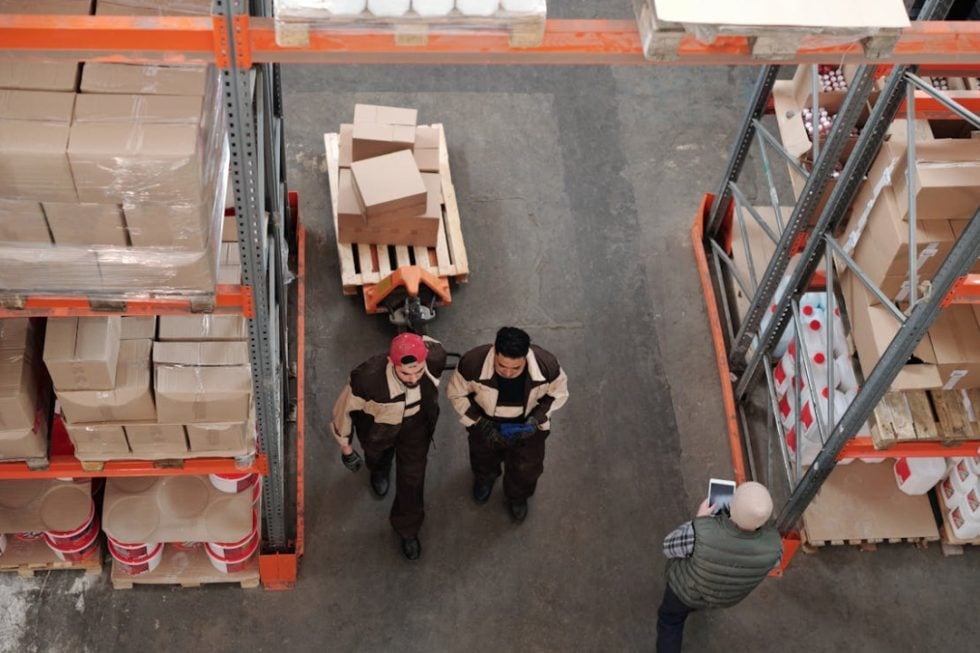If you’ve heard the names AliExpress and Alibaba tossed around in the world of online shopping, you might be wondering if they are the same thing. The short answer is no, but it’s understandable why you’d think they’re similar. Both are major e-commerce players with Chinese roots and they’re even owned by the same parent company, the Alibaba Group. However, they cater to fundamentally different audiences and operate under distinct business models.
Let’s delve into the key distinctions between Alibaba and AliExpress to help you understand when to use one over the other.
Understanding Alibaba: The Wholesale Marketplace

Alibaba is primarily designed for business-to-business (B2B) transactions. Think of it as the digital wholesaler of the internet. It connects businesses – mostly manufacturers and suppliers based in China – with other businesses that want to purchase goods in bulk.
Here’s how the Alibaba model typically works:
- Bulk Orders: Alibaba focuses on wholesale orders, so you’ll often find minimum order quantities (MOQs). These MOQs can range from a few dozen units to thousands, depending on the product.
- Customization: Many suppliers on Alibaba allow you to customize products. You can work with them to add your branding, modify designs, or specify materials.
- Negotiable Prices: Prices on Alibaba are often negotiable. You can contact suppliers directly to discuss better rates, especially for larger orders.
- Building Relationships: Alibaba is about establishing long-term relationships with suppliers. Your goal is to find reliable manufacturers that can consistently provide quality products.
Who Is Alibaba Best For?
Alibaba is an excellent platform for:
- Resellers: Businesses sourcing products to sell for a profit, either online or in brick-and-mortar stores.
- Manufacturers: Companies needing raw materials or components for their production processes.
- Dropshippers: Entrepreneurs who want to start an online store without holding inventory, but might need to negotiate smaller MOQs with suppliers.
- Businesses Needing Large Quantities: Companies that require significant volumes of products for their operations.
Understanding AliExpress: The Retail Marketplace

AliExpress is like the Amazon or eBay of China. It’s a retail marketplace aimed primarily at consumers (B2C), though some businesses use it for smaller-scale sourcing. On AliExpress, you can purchase single items or relatively small quantities without needing to meet bulky MOQs.
Here’s how AliExpress differs from Alibaba:
- Smaller Quantities: No need to buy in huge bulk. You can purchase items individually or in small batches.
- No Customization: Products on AliExpress are generally sold as-is, with little room for customizing them.
- Fixed Prices: Prices displayed on AliExpress are typically non-negotiable.
- Wide Product Variety: From clothing and electronics to home goods and quirky gadgets, AliExpress offers a vast selection.
Who Is AliExpress Best For?
AliExpress is ideal for:
- Individual Consumers: People looking for affordable deals on a variety of products.
- Bargain Hunters: Shoppers who want the lowest prices.
- Small-Scale Dropshippers: Those testing new products before committing to larger orders on Alibaba.
- Businesses Needing Product Samples: Companies wanting to see a product before ordering larger quantities.
Key Differences in a Nutshell
Here’s a quick summary of the core differences between Alibaba and AliExpress:
| Feature | Alibaba | AliExpress |
|---|---|---|
| Target Market | Businesses (B2B) | Consumers (B2C) |
| Order Quantity | Bulk, Minimum Order Quantities (MOQs) | Individual items or small quantities |
| Customization | Often available | Rarely available |
| Pricing | Negotiable | Fixed |
| Product Focus | Raw materials, manufacturing components, finished goods | Finished consumer goods |
Additional Considerations
Beyond the basic differences, there are a few more points to keep in mind when comparing Alibaba and AliExpress:
- Shipping Costs and Times: Shipping from China can be costly, particularly for smaller orders on AliExpress. Alibaba orders, while often cheaper per unit due to bulk quantities, may have higher overall shipping costs. Factor in delivery times, which can be lengthier than domestic shipping.
- Supplier Verification: Due diligence is essential on both platforms. Alibaba features an in-depth verification program to assess suppliers. AliExpress relies more on user ratings and reviews, requiring extra research on your part to find reliable sellers.
- Payment Protection: AliExpress offers a buyer protection program similar to eBay or Amazon. Alibaba often involves direct transactions with suppliers using methods like wire transfers, where resolving disputes can be more complicated.
Which One Should You Choose?
The best platform for you hinges on your individual needs and goals:
- Use Alibaba if:
- You’re a business owner looking to source products for resale.
- You need large quantities of products.
- You want to customize products with your own branding or specifications.
- You’re comfortable negotiating with suppliers and handling import logistics.
- Use AliExpress if:
- You’re an individual consumer looking for bargains on a wide range of products.
- You only need small quantities or want to purchase individual items.
- You don’t require customization.
- You prefer a more simplified shopping experience with buyer protection.
Important Notes
- Prices Aren’t Always Cheaper: While prices on Alibaba and AliExpress are often lower than domestic sources, factor in shipping costs, import duties, and potential MOQs. Sometimes, local suppliers can offer better overall value, especially factoring in speed and support.
- Beware of Counterfeits: Unfortunately, counterfeit goods are an issue on both platforms. Exercise caution, thoroughly research suppliers, and be wary of deals that seem too good to be true.
- The Alibaba Group Connection: Remember, both Alibaba and AliExpress are part of the Alibaba Group. It’s possible to find sellers who list products on both platforms, so pricing and conditions may vary.
Conclusion
Alibaba and AliExpress are powerful e-commerce platforms, each serving a distinct purpose. Alibaba is the place for businesses seeking wholesale and manufacturing connections. AliExpress is a haven for individual consumers looking for affordable deals. Understanding the nuances between the two will help you make informed purchasing decisions and navigate the world of Chinese e-commerce with confidence.
Latest AliExpress Coupons
Ready to shop on AliExpress? Don’t pay full when you can get it for less with coupons. Use AliExpress coupons below to save big on your order. Also don’t forget you can keep track of AliExpress sales with our AliExpress sales calendar, so you don’t miss out on any opportunity to save big with your AliExpress orders again.




Leave a Reply